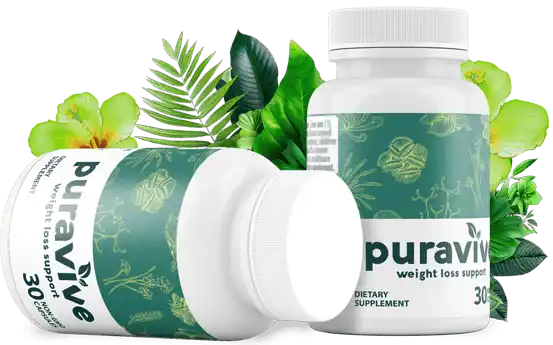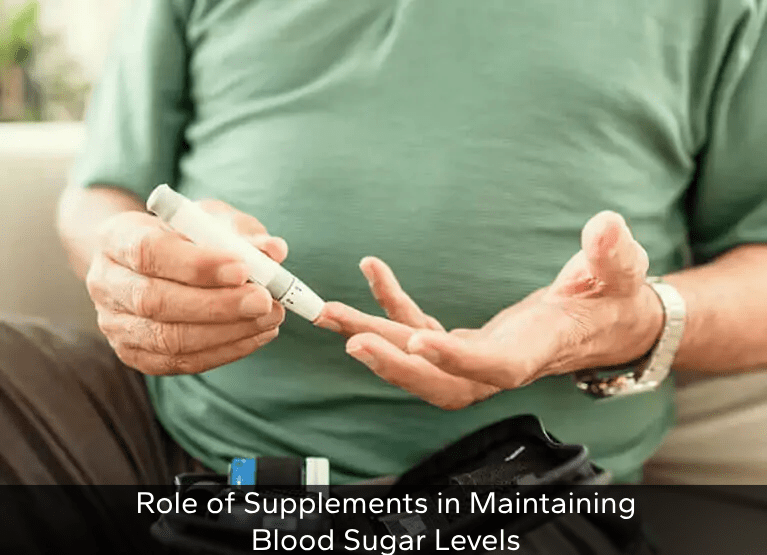Your blog category


Did you know you can boost your immune system naturally? No need for supplements or pills. Simple habits can help your body fight off germs and stay healthy. How to boost immunity naturally is backed by science and easy to follow.
This article will show you seven easy ways to strengthen your immune system. You’ll learn how to make small changes in your diet and sleep. No need for extreme diets or complicated routines. Just simple tips for better health.
Key Takeaways
- Focus on foods rich in vitamins C and D, like oranges and fortified milk.
- Sleep quality matters as much as hours slept.
- Hydration supports immune cells and bodily functions.
- Stress reduction techniques lower inflammation.
- Outdoor activity combines exercise and sunlight for dual benefits.
Introduction about How to boost immunity naturally
Your immune system is like a bodyguard, fighting off germs and keeping you healthy. This guide shows simple, How to boost immunity naturally You don’t need complicated routines. Let’s explore why these methods work and how they can make you feel better.
Overview of Immune Health
Immune health means your body’s defenses are strong against daily threats. It includes:
- White blood cells that attack invaders
- Antibodies that neutralize pathogens
- Skin and mucous membranes as physical barriers
Benefits of how to boost immunity naturally
Natural methods are safe and avoid harsh chemicals and side effects. Here’s what they offer:
| Benefit | Example Method |
|---|---|
| Safe for all ages | Drinking herbal teas |
| Cost-effective | Cooking with garlic or ginger |
| Supports long-term wellness | Walking in nature |
By choosing these natural approaches, you build a strong defense against illnesses. Small changes can lead to big improvements!
Eat More Immune-Boosting Foods
Nutrient-rich foods are key to a strong immune system. Adding these to your diet can naturally boost your defenses. Start with foods high in vitamin C like oranges, strawberries, and red peppers. These help fight off germs and repair cells.


- Garlic and ginger contain compounds that reduce inflammation.
- Spinach and kale offer vitamin A and iron to support white blood cell production.
- Almonds provide vitamin E, boosting antibody response.
| Vitamin | Key Sources |
|---|---|
| Vitamin C | Oranges, kiwi, bell peppers |
| Zinc | Nuts, seeds, shellfish |
| Vitamin D | Fatty fish, fortified milk |
| Antioxidants | Blueberries, dark chocolate |
“A colorful plate equals a strong immune system.” – National Institute of Health
Swap unhealthy snacks for nutrient-dense ones like apple slices with peanut butter or Greek yogurt with berries. Cooking with turmeric or oregano adds anti-inflammatory benefits. Small changes can make a big difference. Focus on variety and whole foods for lasting results.
Get Enough Quality Sleep
Sleep is not just for resting—it’s key to a strong immune system. When you sleep well, your body makes proteins that fight infections. Not getting enough sleep weakens these defenses, making you more likely to get sick. Try to sleep 7-9 hours each night to help your body heal naturally.


Understanding Sleep Cycles
Your body goes through different sleep stages. The deepest ones, called REM sleep, help fix tissues and boost immune cells. If sleep is disrupted, your body can’t fight off germs as well.
Tips for a Restful Night
Small changes can make a big difference. Try these steps:
- Stick to a consistent bedtime and wake time—even on weekends.
- Keep your bedroom cool, dark, and quiet. Blackout curtains or a white noise machine can help.
- Avoid screens an hour before bed; blue light disrupts sleep hormones.
- Limit caffeine and heavy meals late in the day.
Prioritizing sleep is not a luxury—it’s essential for a healthier you. Your immune system needs those restful hours to stay strong and defend you.
Stay Hydrated
Water is like a shield for your body. It helps every cell, tissue, and organ work right, including your immune system. Without enough water, your body can’t absorb nutrients or get rid of toxins as well.


- Drink water first thing in the morning to kickstart your metabolism.
- Add citrus slices or cucumber to plain water for flavor without added sugar.
- Track intake: Aim for 8-10 cups daily, adjusting for activity levels.
“Even mild dehydration can reduce immune cell activity by up to 30%,” says Dr. Emily Carter, a nutrition specialist at Harvard Health.
Drinking water isn’t the only way to stay hydrated. Herbal teas, broths, and fruits like watermelon also help. But, try to avoid sugary drinks. If you’re really active, use electrolyte tablets instead.
Your body tells you when you need more water. Look out for signs like a dry mouth, dark urine, or feeling tired. Paying attention to these signs helps keep your immune system strong and your body working well.
Manage Stress Naturally
Stress can weaken our immunity, but making small changes can help a lot. Here are some easy ways to relax and feel better:


Mindfulness Techniques
- Try deep breathing exercises for 5 minutes every day. Slowly inhale, hold, then exhale to calm your mind.
- Practice 10-minute guided meditations with apps like Headspace or Calm.
- Yoga flows like Child’s Pose or Cat-Cow help ease body tension.
Herbal Stress Relievers
Try these natural options:
- Ashwagandha supplements (Gaia Herbs) lower cortisol, the stress hormone.
- Chamomile tea (Yogi Bedtime Tea) helps you relax before bed.
- Lavender essential oil (Young Living) in a diffuser can reduce anxiety.
Combine these steps with regular exercise and sleep for even better results. Small changes can lead to a healthier, less stressed life!
Get Moving with Regular Exercise
Moving your body every day can boost your immune system. Even simple activities like walking or cycling help. They improve blood flow, letting immune cells do their job better. Try to do at least 30 minutes of activity most days.
- Brisk walks outside
- Yoga sessions for flexibility
- Home strength training with free weights


| Exercise Type | Time | Immune Benefits |
|---|---|---|
| Aerobics | 20–30 mins | Enhances antibody response |
| Swimming | 30 mins | Reduces inflammation |
| HIIT | 15 mins | Boosts white blood cell activity |
“Exercise increases circulation, allowing immune cells to move freely and detect pathogens sooner.” – Harvard Health Publishing
Begin with small steps: Add a 10-minute walk after meals or try a 15-minute home workout video. It’s more important to be consistent than to do a lot. Even simple stretches can help.
Soak Up Some Sunshine (Vitamin D)
Did you know sunlight is key to a strong immune system? Getting some sun helps your body make vitamin D. This nutrient fights off germs and keeps you healthy. Even a bit of sun each day can make a big difference!


Benefits of Sunlight Exposure
- Vitamin D production supports immune cells that battle infections.
- Sun exposure boosts serotonin, lifting your mood and lowering stress—both key for a strong immune response.
- Safe sunlight improves bone strength and energy levels naturally.
Getting Safe Sun Time
Protect your skin while still catching those rays. Try these steps:
- Soak up 10–15 minutes of morning or early afternoon sun 3–4 times weekly.
- Use sunscreen only after initial exposure to let your body absorb vitamin D first.
- Check the UV index daily. Aim for low-to-moderate UV levels to avoid burns.
Making sun time a daily habit pairs perfectly with eating right, sleeping well, and moving your body. A little sunlight can be your immune system’s simplest superfood!
How to boost immunity naturally


Making small changes daily can turn your home into a hub of healthy home remedy practices. Start by blending previous tips into routines that feel natural. Consistency is key—here’s how to turn advice into action.
Incorporating Daily Habits
- Combine morning exercise with a vitamin C-rich breakfast (like oranges or strawberries).
- Set reminders for hydration breaks every 2 hours.
- Use stress-relief techniques during work breaks, like deep breathing.
Practical Steps to Follow
Try these proven methods to reinforce your immune system:
- Herbal Teas: Drink chamomile before bed for sleep or ginger tea midday for digestion.
- Essential Oils: Diffuse lavender or eucalyptus in living spaces for natural aromatherapy.
- Meal Prep: Prep immune-boosting meals like turmeric lattes or garlic-infused soups.
| Healthy Home Remedy | Benefit | How to Use |
|---|---|---|
| Honey and lemon water | Antibacterial and soothes throat | Mix 1 tsp honey + ½ lemon in warm water daily |
| Probiotic-rich foods | Supports gut immunity | Eat yogurt, kefir, or sauerkraut 3x/week |
“Small, consistent choices create big health wins.” — Dr. Sarah Lee, Wellness Coach
Conclusion
Your immune system gets stronger with simple, natural steps. Eat foods like citrus, nuts, and leafy greens. Also, aim for 7-9 hours of sleep and short walks each day.
Even small actions help a lot. Drinking water and taking breaks can make a big difference. These habits boost your immune system.
Healthy habits are key. Try eating more veggies, taking a 10-minute walk, or spending time outside. These habits help your body fight off sickness.
Being in nature is also good for you. Eating whole foods, resting, and moving help your body stay healthy. Every healthy choice you make today makes you stronger.
Start making small changes today. You’ll see big improvements in your health over time. Begin now and watch your well-being grow naturally.
FAQ
What are some effective ways to boost immunity naturally?
To boost your immunity naturally, eat more citrus fruits and leafy greens. Make sure you get enough sleep and stay hydrated. Manage stress with mindfulness and relaxation.
Exercise regularly and get some sunshine for vitamin D.
How important is sleep for immune health?
Sleep is very important for your immune health. It helps your body repair and grow. Not getting enough sleep can weaken your immune system.
Try to sleep 7-9 hours each night.
Can stress affect my immune system?
Yes, stress can harm your immune system. It makes it harder for your body to fight off infections. Use stress management techniques like meditation or yoga to help.
What are some natural remedies for stress relief?
Natural stress relief includes mindfulness and deep breathing. Herbal options like chamomile or ashwagandha can also calm your nervous system.
How much water should I drink to stay hydrated?
Drink at least 8 glasses of water a day. Listen to your body to adjust your intake based on how active you are and the weather.
Is exercise really that beneficial for my immune system?
Yes, exercise is very beneficial! It improves circulation, reduces stress, and boosts your health. Aim for 150 minutes of moderate exercise each week.
How can I safely get sunlight exposure for vitamin D?
Spend 10-30 minutes in the sun a few times a week. Use sunscreen after to protect your skin from UV rays.
What types of foods should I focus on for immune support?
Eat colorful fruits and vegetables for vitamins C and E. Include foods high in zinc like nuts and seeds. Fermented foods like yogurt support a healthy gut.
How often should I incorporate these immunity-boosting habits into my routine?
Make these habits part of your daily routine. Consistency is key to using healthy remedies and integrating them into your life.

































